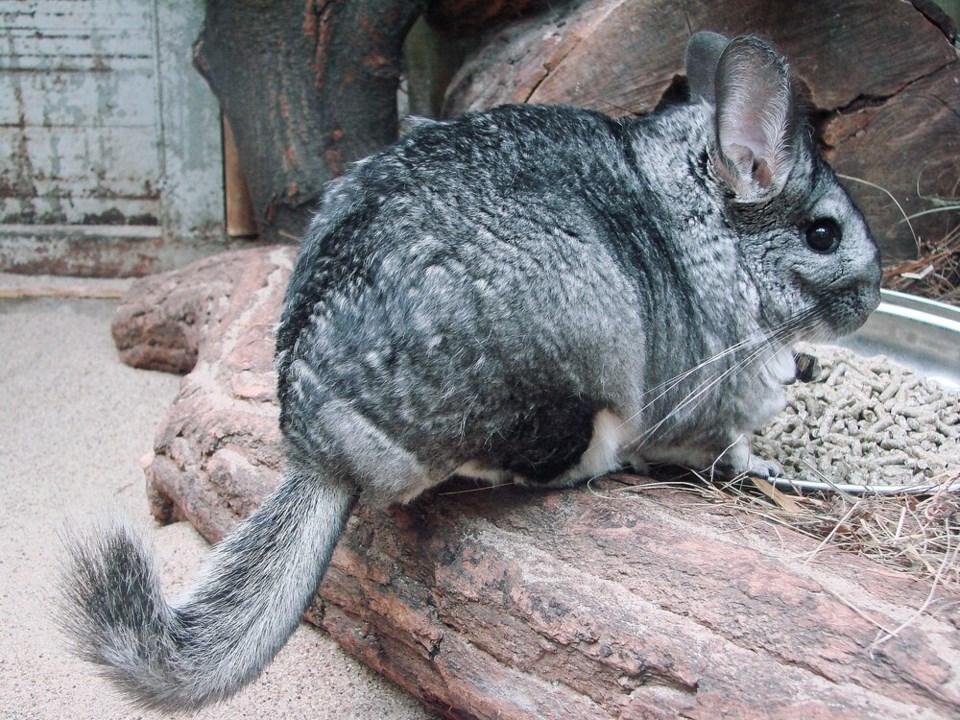An animal advocacy group is suing the province after it claims its chief veterinarian issued a fur farm licence to B.C.’s only chinchilla farm even though it had operated for several years without a health management plan.
In a petition filed to the B.C. Supreme Court on July 6, The Fur-Bearers claim Rayna Gunvaldsen issued a fur farm licence to a chinchilla fur farm in Buffalo Creek, B.C.
But documents obtained by the animal advocacy group in a freedom of information request to the ministry indicated the farm did not have a health management plan, required by law in B.C., claims the petition.
“This lawsuit is really centring on an industry that’s an anachronism,” says Fur-Bearers lawyer Victoria Shroff, noting this is the first time such a case has been brought before a B.C. court.
“Animal health is human health. We’re looking at an overlap,” she says.
A spokesperson for the Ministry of Agriculture, Food and Fisheries said it received a petition last week and that it is currently reviewing the details
“Out of respect for this process, the ministry will not be commenting any further on this matter at this time,” wrote the spokesperson in an email to Glacier Media.
Chinchillas, roughly the size of a squirrel and native to the Andes Mountains, are often kept as pets. Their soft fur has vaulted them into the global fur trade since the Spanish invaded the Incan Empire just under 500 years ago.
Shroff likened B.C.’s only chinchilla farm to the 10 mink farms in the province, most of which are in the Fraser Valley. COVID-19 was discovered on at least three farms since the start of the pandemic, leading to the destruction of thousands of animals.
In Denmark, COVID-19 cases in mink led to a government order to cull the country’s entire farmed population. Since then, there has been a wider push in several countries, including the United States, to ban mink farming.
According to the International Fur Federation, the global fur trade is worth over $38 billion.
Mark Oaten, CEO of the global fur industry group, pushed back against “misinformation” last fall, criticizing animal activists who have used what happened in Denmark to push an “anti-fur agenda.”
“Rumours of fur’s demise from the usual doubters and doomsters are wild exaggerations,” he said in an industry group press release, adding farmers in the U.S., Canada and Europe can fill “the temporary gap left by Denmark.”
Chinchillas have not been found to carry the virus that causes COVID-19, but in Ontario, the government warns, “It is essential that an effective vector control be implemented, as mice and rats can carry communicable diseases to chinchillas.”
In B.C., a farm health management plan requires a blueprint on how the farm intends to track mortality rates and a description of the procedures used when isolating and segregating any fur-bearing animal on the fur farm showing signs of illness, among other measures.
While not part of the application to squash the farm’s licence, Schroff says the case is important because it it shines a spotlight on the fur farming industry more widely.
“Chinchillas can be killed by gassing them, electrocution and breaking their necks. This kind of industry has no place in 2021,” she says.
The province has until the end of the month to respond to the lawsuit. None of the claims have been proven or tested in court.
Stefan Labbé is a solutions journalist. That means he covers how people are responding to problems linked to climate change — from housing to energy and everything in between. Have a story idea? Get in touch. Email [email protected].



